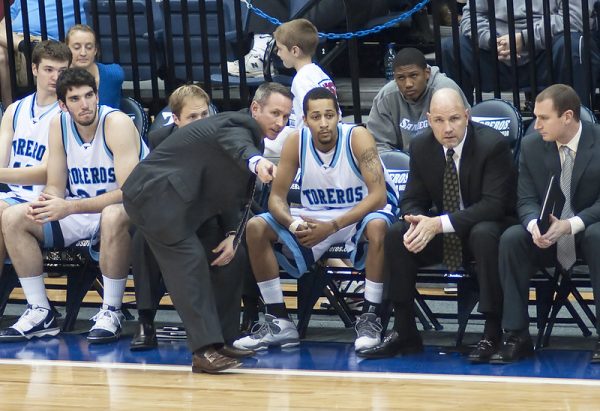
Over 50% of men’s NCAA Division 1 basketball players are black, but over 75% of coaches at that level are white. In new research, Ryan Seebruck and Scott Savage examine who is likely to fill vacant coaching positions as a way to better understand the continued racial inequities in D1 basketball.
The authors looked up biographical information for every NCAA Division I basketball assistant coach who had the opportunity to get an internal head coaching hire from 2008-2013 (over 700 assistant coaches at 239 schools that had head coach openings). They then tested what variables affect the likelihood of a coach receiving an internal promotion, including whether their race matched the race of the outgoing head coach.
White assistant coaches under white head coaches are the most likely to benefit from an internal hire, so basic social reproduction is part of the story. But there is an important organizational dimension here, as well. It involves the racial composition of the coaching staff as a whole. Schools were more likely to promote an assistant coach to the head spot if the racial composition of the staff matched the race of the previous head coach. In other words, if the outgoing coach was white, the likelihood of promoting one of the assistant coaches was highest when all of the assistant coaches were white. As the number of Black assistants increased, schools were more likely to pass over all of the assistant coaches and hire an outside coach. For Black head coaches the situation was symmetrical — the likelihood of internal promotion increased as the number of black assistant coaches increased.
This research adds to our understanding of how racial matching and organizational structure can maintain inequality, and how and when change can occur. Individual black coaches may be hired to assist with recruiting and player development in the college ranks, but their path to the top job at predominantly white institutions will be difficult. As protests and legislation across the country bring more attention to racial inequities in college athletics, this research suggests that coaching may be the next area of contention.
